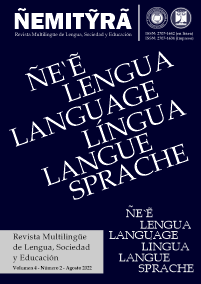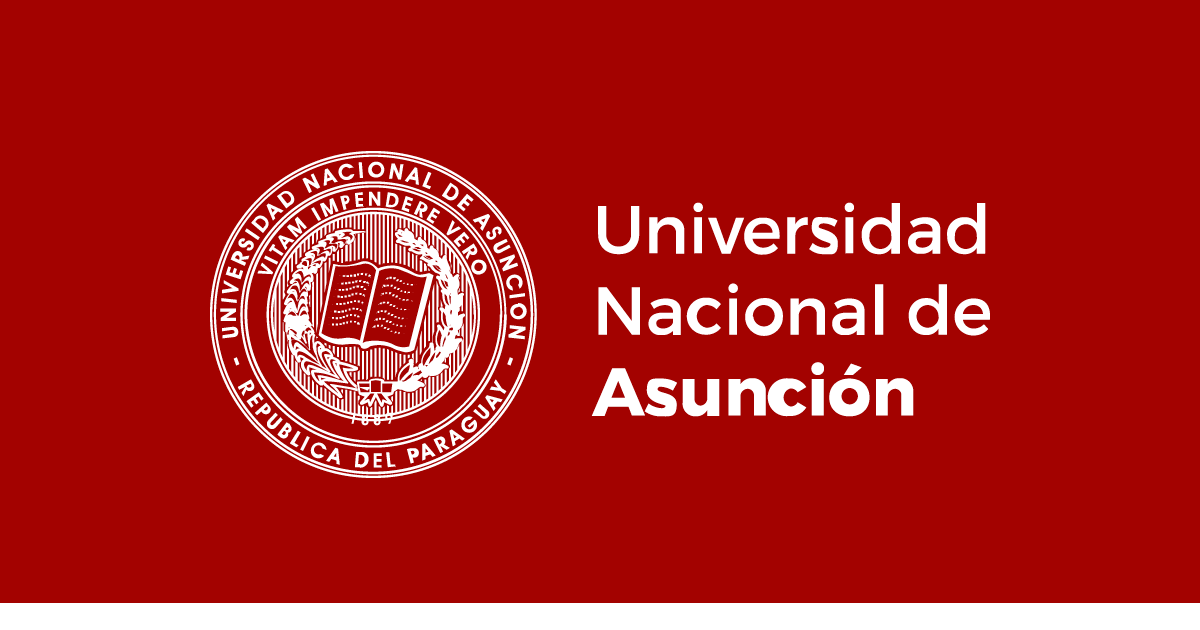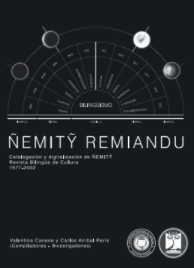Neoliberalism and ELT Policy in México: Analysis and Implications from a Political Economy Stance
DOI:
https://doi.org/10.47133/NEMITYRA20222002A5Palabras clave:
political economy, English language teaching, neoliberalism, ELT policyResumen
The influence of Neoliberalism on domestic policies has been well documented in the literature. Broadly speaking, there is evidence that many countries have adapted their policies to neoliberal principles which, among other aspects, require governments to promote ‘the privatization of public services, the capitalization and commodification of humanity’ (Kumar and Hill, 2009p. 1). In terms of language learning and teaching, ‘there is little doubt that language is now treated as a skill that, in effect, can be bought and sold in job markets’ (Block, 2018 p. 14). Under this scope, Block, Gray and Holborow (2014 p.1) suggest “one blind spot in the interdisciplinarism of applied linguistics has been political economy and in particular a detailed critique of neoliberalism as the ideology driving the practice of economics by governments and international organizations today. This article derives from a broader study which aims at analyzing a) the orientations, enactment and social/institutional practices of the ELT policies in Mexico under the light of neoliberal ideologies. Here, the analysis -and results- focus on the identification of the relationship of neoliberal ideology and Mexico’s ELT policy. For the purposes of this delivery, the analysis consisted on the identification of the role that macro international organizations have played in shaping Mexico’s domestic education policy over the past three decades. Developing from this, an identification and description of the specific public policies which have emanated from the macro-organizations’ suggestions is also part of the analysis. Results confirm that there is a direct relationship between international recommendations and local policies. These results are discussed under the light of the political economy strand of research in linguistics.
Referencias
Ager, D. (2001). Motivation in language planning and language policy. Clevedon: Multilingual Matters.
Babaii, E. and Sheikhi, M. (2018). ‘Traces of neoliberalism in English teaching materials: a critical discourse analysis’, Critical Discourse Studies. Routledge, 15(3), pp. 247–264.
Barahona, M. (2016). ‘Challenges and accomplishments of ELT at primary level in Chile: Towards the aspiration of becoming a bilingual country’, education policy analysis archives, 24(82), pp. 1–29.
Barrow, C. W., Didou-Aupetit and S., Mallea, J. (2003). Globalisation, Trade Liberalisation, and Higher Education in North America. New York: Springer.
Bianco, J. Lo (2009). ‘Critical Discourse Analysis (CDA) and Language Planning (LP): Constraints and Applications of the Critical in Language Planning.’, in Le, T. and Short, M. (eds) Critical Discourse Analysis: An Interdisciplinary Perspective. 1st edn. London: Nova Science Publishers, pp. 101–118.
Block, D. (2018). ‘Political economy: Background and approach’, in Block, D. (ed.) Political Economy and Sociolinguistics: Neoliberalism, Inequality and Social Class. 1st edn. London: Bloomsbury Publishing PLC, pp. 31–47.
Block, D. and Gray, J. (2016). ‘“Just go away and do it and you get marks”: the degradation of language teaching in neoliberal times’, Journal of Multilingual and Multicultural Development. Routledge, 37(5), pp. 481–494. doi: 10.1080/01434632.2015.1071826.
Block, D., Gray, J. and Holborow, M. (2014). ‘Introduction’, in David Block, Gray, J., and Holborow, M. (eds) Neoliberalism and Applied Linguistics. New York: Routledge, pp. 1–13. Available at: http://ebookcentral.proquest.com/lib/soton-ebooks/detail.action?docID=957230.
Castellani, A. G. (2002). ‘Implementación del modelo neoliberal y restricciones al desarrollo en la Argentina contemporánea’, in M. Schorr, A. G., Castellani, M. D., and Sánchez, D. D. (eds) Mas allá del pensamiento único. Buenos Aires: Consejo Latinoamericano de Ciencias Sociales.
Codó, E. (2018). ‘Language Policy and Planning, Institutions , and Neoliberalisation’, in Tollefson, J. W. and Pérez-Milans, M. (eds) The Oxford Handbook of Language Policy and Planning. Oxford: Oxford University Press, pp. 1–19.
Copley, K. (2018). ‘Neoliberalism and ELT Coursebook Content’, Critical Inquiry in Language Studies, 15(1), pp. 43–62.
Correa, D. and González, A. (2016). ‘English in Public Primary Schools in Colombia: Achievements and Challenges Brought about by National Language Education Policies’, Education Policy Analysis Archives, 24(83), pp. 1–30.
Domenech, E. and Mora-Ninci, C. (2009). ‘Wordl bank discourse and policy on education and cultural diversity for Latin America’, in Hill, D. and Kumar (eds) Global Neoliberalism and Education and its Consequences. 2009th edn. New York: Routledge, pp. 151–170.
Grin, F. (2003). ‘Language Planning and Economics’, Current Issues in Language Planning. Informa UK Limited, 4(1), pp. 1–66.
Gunarsson, B. L. (2010). ‘Multilingualism within companies: An analysis of company policy and practice in a diversity perspective’, in Kelly-Holmes, H. and Mautner, G. (eds) Language and the market. London: Palgrave Macmillan, pp. 171–184.
Gwynne, R. N. (1997). ‘Neoliberalism and Urban Development in Latin America’, Verf, p. 182. Available at: https://www.routledge.com/Neoliberalism-and-Urban-Development-in-Latin-America-The-Case-of-Santiago/Boano-Vergara-Perucich/p/book/9781138123694.
Holborow, M. (2014). ‘What is Neoliberalism?’, in Block, D., Gray, J., and Holborow, M. (eds) Neoliberalism and Applied Linguistics. New York: Routledge, pp. 14–32.
Hornberger, N. H. (2009). ‘Multilingual education policy and practice: Ten certainties (grounded in Indigenous experience)’, Language Teaching, 42(3), pp. 197–211.
Johnstone, Ri. (2010). ‘An early start: What are the key conditions for generalized success?’, in Janet Enever, J., Moon, A., and Raman, U. (eds) Young Learner English Language Policy and Implementation: International Perspectives. Reading: Garnet Publishing Ltd., pp. 31–42.
Joseph Zajda (ed.) (2015). Globalisation, Ideology and Politics of Education Reforms. 1st edn. New York: Springer. Available at: http://www.springer.com/series/6932.
Kumar, R. and Hill, D. (2009). ‘Introduction: Neoliberal Capitalism and Education’, in Hill, D. and Kumar (eds) Global Neoliberalism and Education and its Consequences. 2009th edn. New York: Routledge, pp. 1–13.
Lee, M. W. (2016). ‘“Gangnam style” English ideologies: Neoliberalism, class and the parents of early study-abroad students’, International Journal of Bilingual Education and Bilingualism. Routledge, 19(1), pp. 35–50. doi: 10.1080/13670050.2014.963024.
Levidow, L. (2002). ‘Marketizing higher education: neoliberal strategies and counter-strategies’, in Robins, K. and Webster, F. (eds) The Virtual University? Knowledge, Markets and Management. Oxford: Oxford University Press, pp. 227–248.
Ministerio de Educación (2017). Decreto 81. Santiago.
Mulderrig, J. (2002) ‘Learning to labour: The discursive construction of social actors in New Labour’s education policy’, Anglistik und Englischunterricht, 65, pp. 123–146.
OECD (1994). Invitation to Mexico to accede to the convention on the organisation for economic co-operation and development. Paris.
___________. Improving schools strategIes for actIon In MexIco: Executive summary. Paris.
___________. Education Policy Outlook: Mexico. Paris.
___________. Economic Policy Reforms 2015: Going for Growth. Paris.
___________. Mexico policy priorities to upgrade the skills and knowledge of mexicans for greater productivity and innovation. Paris.
___________. OECD Skills Strategy Diagnostic Report Mexico. Paris. Available at: http://www.oecd.org/centrodemexico/inicio.
___________. OECD work on education and skills. Paris. Available at: http://www.oecd.org/youth.htm.
___________. Towards a stronger and more inclusive Mexico an assessment of recent policy reforms. Paris. Available at: www.oecd.org/mexico/.
___________. OECD Mexico. Available at: https://www.oecd.org/mexico/.
Park, J. (2013). ‘Metadiscursive regimes of diversity in a multinational corporation’, Language in Society, 42(5), pp. 557–577.
Phillipson, R. (2009). Linguistic imperialism. New York: Routledge.
Porto, M. (2016). ‘English Language Education in Primary Schooling in Argentina’, education policy analysis archives, 24(80), pp. 1–29.
Ricento, T. (2015). ‘Political economy and English as a “global” language’, in Ricento, T. K. (ed.) Language policy and political economy: English in a Global Context. 1st edn. New York: Oxford University Press, pp. 27–47.
__________. (ed.) (2015). Language policy and political economy: English in a global context. Oxford: Oxford University Press.
Rikowski, G. (2002). Globalisation and Education. London.
Rincones, R., Hampton, E. and Silva, C. (2008). ‘Teaching for the Factory: Neoliberalism in Mexican Education’, in Compton, M. and Weiner, L. (eds) The Global Assault on Teaching, Teachers, and their Unions: Stories for Resistance. New York: Palgrave Macmillan, pp. 37–43.
Sayer, P. (2015b). ‘Expanding global language education in public primary schools: the national English programme in Mexico’, Language, Culture and Curriculum, 28(3), pp. 257–275.
Secretaría de Educación Pública. (2011). Programa Nacional de Inglés en Educación Básica Segunda Lengua: Inglés Fundamentos curriculares. Mexico, D.F.
_______________________________. (2013). ACUERDO número 706 por el que se emiten las Reglas de Operación del Programa de Fortalecimiento de la Calidad en Educación Básica, Diario Oficial de la Federación. Mexico, D.F.
_______________________________. (2001). Programa Nacional de Educación, 2001-2006 : por una educación de buena calidad para todos un enfoque educativo para el siglo XXI. Mexico, D.F.
_______________________________. (2007). Programa Sectorial de Educación 2007-2012. Mexico, D.F.
Simpson, W. (2018). ‘Neoliberal fetishism: the language learner as homo œconomicus’, Language and Intercultural Communication. Routledge, 18(5), pp. 507–519.
Walton, M. (2004). ‘Neoliberalism in Latin America: Good, Bad , or Incomplete ?’, Latin American Research Review, 39(3), pp. 165–183.
Warriner, D. S. (2016). ‘“Here, without English, you are dead”: ideologies of language and discourses of neoliberalism in adult English language learning’, Journal of Multilingual and Multicultural Development. Routledge, 37(5), pp. 495–508.
West, G. B. (2019). ‘Navigating morality in neoliberal spaces of English language education’, Linguistics and Education. Elsevier Ltd, 49, pp. 31–40.
Zajda, J. (ed.) (2015). Second International Handbook on Globalisation, Education and Policy Research. Second. New York: Springer.
Descargas
Publicado
Número
Sección
Licencia
Derechos de autor 2022 Yonatan Puón Castro; Jorge Luis Mendoza Valladares; y Revista Ñemitỹrã

Esta obra está bajo una licencia internacional Creative Commons Atribución-NoComercial-SinDerivadas 4.0.










